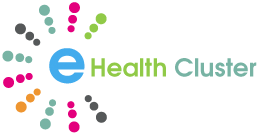What is DISH?
The Erasmus+ DISH project addresses the challenge of the digital skills gap of healthcare staff by establishing a triple helix partnership consisting of health care providers, educational institutions and enterprise representatives in each of the six countries piloting the project’s results
The Challenge
- ehealth solutions aimed at supporting health care workers in their duties, making processes more efficient and empowering patients and carers to better participate in their own health.
- however they are of ten not deployed to their full potential, often for lack of digital skills and innovation readiness requires to make solutions work and secure adoption.
The Goal
The European Healthcare workforce is not yet equipped the the necessary competencies and knowledge to fully benefit from ongoing technological transformation. DISH will design and implement a training environment able to create the necessary ‘missing link’ between the progressive digitisation and the lack of required skills
Results and Outcomes
The project aims to provide real-life solutions to everyday situations:
- Haalthcare workers will receive a certificate of participation with an assessment on the competencies that they have obtained
- A sustainability and sector skills strategy targeting both EU care providers and public authorities will guide the uptake of DISH results after the project’s end.
- 600 health care staff will be trained in the Learning Innovations Units set up in the six pilot counties
- Training will be provided following an on the job training concept, sometimes using simulation to allow worked-based learning in secure environments

About the Project
The Erasmus+ DISH project, started in November 2018, was launched in Denmark on 17-18 January 2019, and will complete in October 2021.
Six countries are involved in the project, each with its’s own triple helix partnership consisting of health care providers, educational institutions and enterprise representatives. To these national ecosystems, two wide-European organisations (i.e. European Connected Health Alliance, ECHAlliance, and European Health Management Association, EHMA) are added to promote wide dissemination and stakeholders’ involvement.
The overall aim of the project is to contribute to the implementation of the EU 2020 Strategy as well as the main goals of the European Innovation Partnership on Active and Healthy Ageing (EIP on AHA) in terms of skills development and job creation. The project responds to the “Agenda for New Skills and Jobs”, equipping future and present staff in the health care sector with the right skills to face the challenges in the sector.
DISH is a pan-European Sector Skills Alliance led by the Region of Southern Denmark (Hospital of Southern Jutland), and brings together 19 organizations in total. The consortium is well balanced in terms of involvement from healthcare providers to academia, as well as public and non-profit organizations:
- Southern Jutland Hospital (SHS) – Denmark
- South Denmark European Office (SDEO) – Denmark
- Western Norway University of Applied Sciences (HVL) – Norway
- University College Lillebaelt (UCL) – Denmark
- Welfare Tech – Denmark
- Norwegian Smart Care Cluster (NSCC) – Norway
- Vaksdal Municipality – Norway
- The Health Department Valencia-La Fe (IISLAFE) – Spain
- Polytechnic University of Valencia (UPV) – Spain
- Polibienestar Research Institute – Spain
- European Health Management Association (EHMA) – Belgium
- European Connected Health Alliance (ECHAlliance) – Ireland
- NHS Liverpool Clinical Commissioning Group (CCG) – United Kingdom
- Edge Hill University (EHU) – United Kingdom
- E-Health Cluster LTD – United Kingdom
- Lübeck University (THL) – Germany
- BioCon Valley GMBH (BCV) – Germany
- University Hospital Schleswig-Holstein (UKSH) – Germany
- John Paul II Hospital (JP2) – Poland
DISH project has received funding from the Erasmus+ Programme, Key Action 2: Cooperation for Innovation and the Exchange of Good Practices, Action Type: Sector Skills Alliances (SSAs). The aim of this specific action is to design how to tackle skills, aligning vocational education and training (VET) systems with labour market needs. The three-year project began on 01 November 2018.
More information on the project can be found on the Erasmus+ website and will be soon available through the following link and social media handles:
- Website: www.dishproject.eu
- Twitter: @dish_project (DISH Project)
- LinkedIn: dishprojecteu
- Facebook: @dishprojecteu
